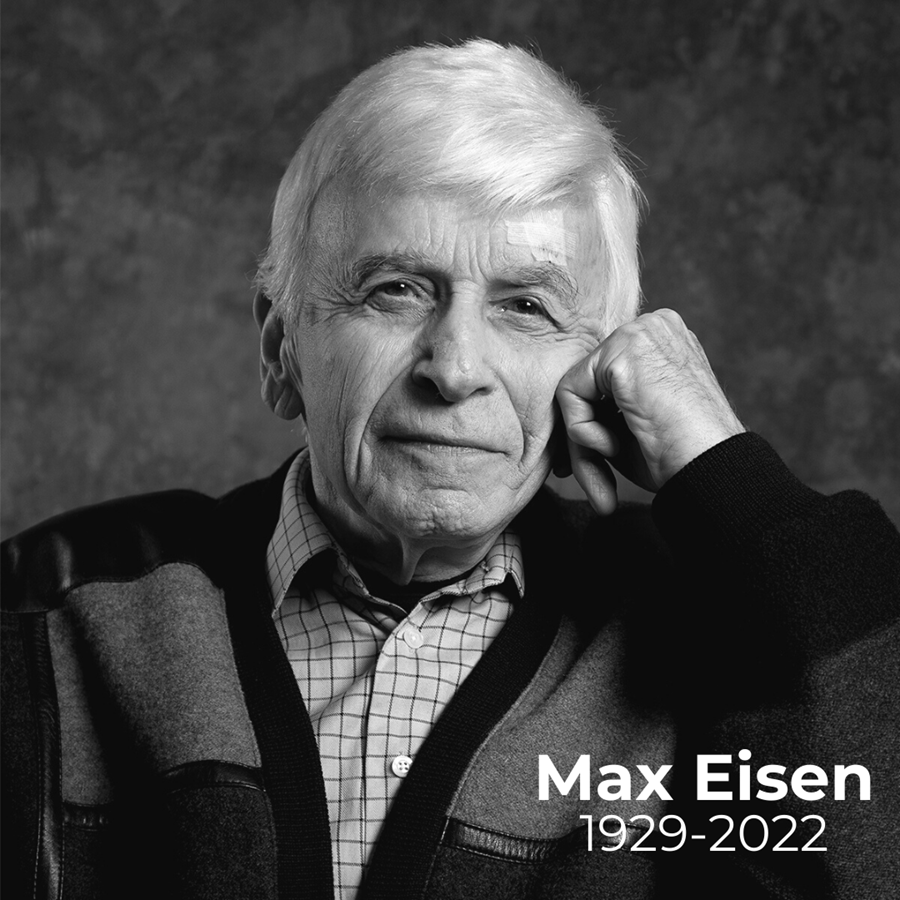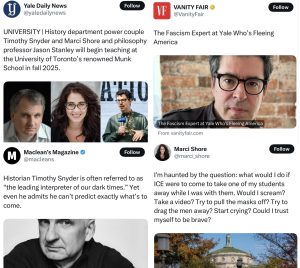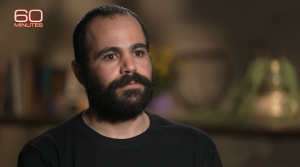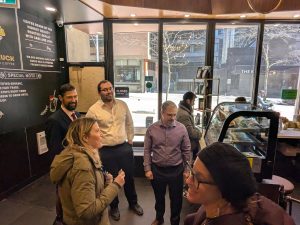Max Eisen—a Holocaust survivor who wrote an award-winning memoir, who travelled across Canada speaking about his experiences in Auschwitz and was a witness at the trial of two former SS guards—died in Toronto on July 7. He was 93.
Eisen’s memoir, By Chance Alone: A Remarkable True Story of Courage and Survival at Auschwitz, was shortlisted for the RBC Taylor Prize in 2017. The book won the 2019 edition of CBC’s Canada Reads.

Eisen was born in Czechoslovakia to a large and well-off Orthodox family. When he was a teenager, they were deported to Auschwitz. He survived horrific conditions in several camps and a death march from Mathausen, Melk and Ebensee. He was liberated by the 761st Black Panther Battalion of the United States in May 1945. Only two cousins from his extended family of more than 60 people survived.
He came to Canada in 1949 as a displaced person and eventually started a successful manufacturing business. But he was best known for the passion he exuded while speaking to students, and in later years to law enforcement personnel, about his experiences in the Holocaust.
Eisen returned to Poland with the March of the Living 18 times, starting with the first one in 1996, until they were suspended due to COVID in 2020, said Eli Rubenstein, who was national director of March of the Living Canada for many years and wrote the afterword to Eisen’s book.
“He had exceptional stamina and passion and eloquence. He had the ability to tell the story in a way that people could listen…. When he would tell a story, it was like you were right there with him, right there sitting next to him,” Rubenstein recalled. “He was a just a natural-born teacher and educator and storyteller.”
Eisen personally reached tens of thousands of people through his presentations and hundreds of thousands more through his book, Rubenstein said.
“Every time he spoke, it brought back the painful memories, and yet he considered it his life mission to educate and teach so it never happens again. He was an incredibly courageous person.”
Eisen also often expressed gratitude for the people who had helped him survive. He cited the Polish doctor Tadeusz Orzeszko, who was working in the Auschwitz clinic and performed surgery, saving him from certain death after he was beaten by a guard. The doctor, who was a member of the Polish resistance, then allowed Eisen to be his assistant.
Five decades after the war, Eisen was also reunited with the soldier who liberated the camp and was able to express his thanks to Sgt. Johnnie Stevens of the Black Panthers Battalion. Eisen often said that had the soldiers arrived just a day or two later, he would not have survived, Rubenstein recalled.
For Eisen, talking about the Holocaust wasn’t only a testimony about antisemitism and hate. He also impressed on his listeners how thankful he was to live in Canada and how easily democracy could be undermined, Rubenstein said.
He would often talk about how the Nazis invaded his family’s home on Passover 1944, while they were singing about freedom.
“He would say, ‘Cherish your democracy, because it can be gone just like that.’ … One moment he was a free human being, and the next moment he lost every human right.”
The staff at the Neuberger Holocaust Education Centre, where Eisen was a regular speaker, were deeply saddened by the news that Eisen had died, executive director Dara Solomon said in an interview.
“He had such a warmth. He would pop into our offices and give you a hug and a kiss and sit and talk for a bit. He had such positive energy,” Solomon said.
“He was so good with students from all different backgrounds and they just connected with him. His story was powerful, and the way he shared it, he was so articulate.”
Although, Eisen had recently been unwell, the news of his death came as a shock, Solomon said. “When you were with him, you didn’t feel you were with an elderly person—you felt you were with somebody so vivacious and young. We think of him in that way, that he would be here forever.”
In 2015, Eisen and other survivors testified at the trial of former SS guard Oskar Groening, who was convicted of thousands of charges of being an accessory to murder. A year later, he testified again at the trial of Reinhold Hanning, who was also convicted.
Ric Esther Beinstock, who produced the film The Accountant of Auschwitz about the Groening trial, compared Eisen to Elie Wiesel in his ability to successfully bring his story of survival to the public.
“We felt lucky and honoured to have (Eisen) share his story and take part in our film. More importantly, he attended many screenings and answered audience questions in the Q&As following the film. His story had a profound impact on audiences of diverse backgrounds. He was a remarkable human being and the entire filmmaking team of The Accountant of Auschwitz mourns the loss of his important voice.”
Eisen also participated in two legacy projects with the USC Shoah Foundation, including the extensive film needed for a hologram-type testimony and a documentary shot in Auschwitz with his son Ed.
In December 2021, Eisen was appointed to the Order of Canada for his commitment to Holocaust education.
He also received honorary doctorates from Trent University, Western University, the University of Saskatchewan and the Law Society of Ontario.
Tributes to Eisen came from across Jewish Canada upon hearing of his death.
“Max was a deeply thoughtful man who reflected on his unlikely survival against all odds during the Holocaust, using his difficult experience to teach younger generations about the dangers of hate and intolerance,” the Friends of Simon Wiesenthal Center said in a statement.
“He taught people of all ages about the power of words, explaining the Holocaust did not begin with violence and murder, but with Nazi lies and myths. He felt strongly about the importance of sharing his message with young people, and he kept every letter written to him by students, which further motivated him to keep sharing his excruciating personal story. Those letters, again, showed how words matter.”
Adam Minsky, CEO of UJA Federation of Greater Toronto, said in a statement, “His leadership in preserving the memory of the Shoah and bringing its lessons to life for the current generation was unparalleled. For so many within our community and throughout Canadian society, meeting Max and hearing his experiences would have a personal impact that lasts a lifetime.
“The positive effect he had on the world around him was simply incalculable and will be felt for many years to come. He did it all with wisdom, kindness, warmth and love for community and humanity alike.”
“Universally recognized as a kind, loving person with enormous generosity of spirit, Max will be deeply missed by all of us at CIJA (the Centre for Israel and Jewish Affairs),” said Barbara Bank, chair of CIJA in Toronto, and Noah Shack, vice-president of CIJA in Toronto, in a statement.
“Because of Max, the memory of the Shoah will live on through the next generation of Canadians he was able to touch by sharing his personal experience as a child survivor of the Holocaust.”
Max Eisen is survived by his wife, Ivy, his sons Ed and Larry, two grandchildren and three great-grandchildren.







